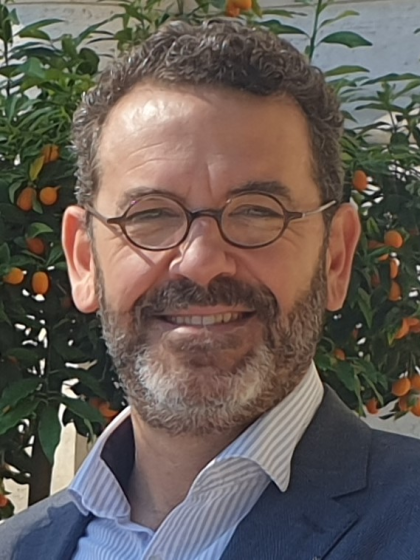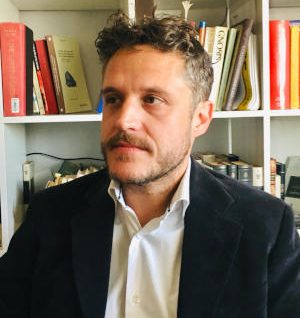Course content
During centuries the city of Rome was considered to be bulwark of main stream Christianity, out of which Catholicism would later develop. New studies, however, rather show that Christianity in the Eternal City was incredibly dynamic and diverse, and that its numerous groups had their own collections of texts, art and artifacts. This intensive course provides an in-depth approach to early Christian diversity during the first centuries CE in the City of Rome. By means of textual, artistic, and archaeological perspectives it sheds light on the variety of Christian currents and believes in the Eternal City. Taking Greco-Roman Religion as a starting point, the course first explores both the changing Early Christian perceptions of Jesus and the numerous disciples that claimed to be privileged heirs of his message. It then focuses on the notion of Jesus’ polymorphism in our earliest sources, both canonical and non-canonical, placing it in the wider context of Greco-Roman divine polymorphism. Early Christian art of the first four centuries amply reflects these views, and the course pays due attention to the artistic manifestations of Jesus polymorphism in the City of Rome. After analyzing some its contemporary resonances as expressed in 20th century films on the figure of Jesus, the course will draw to a close showing that the notion of Jesus’ polymorphism is an intrinsic aspect of Christianity itself that can be traced back to second-century Rome Christian diversity.
Target group
The course is open to a maximum of 7 selected (RMA) and PhD-students (Classics, Religious Studies, Theology, Philosophy, Ancient History, or similar fields), enrolled in one of KNIR partner universities in the Netherlands (RU, RUG, UL, UU, UvA, VU). International students can be admitted to the course but may be asked a tuition fee, please contact KNIR before applying.
Course format
The course is organized by and hosted at the Royal Netherlands Institute in Rome (KNIR). It consists of a 2 weeks intensive seminar period in Rome, with lectures, on-site visits and discussions. During the seminar, each participant delivers an oral presentation either at the institute or in situ on a topic of her/his choice.
Credits and assessment
The study load is the equivalent of 5 ECTS and exists of:
• Lectures / seminar (10 x 3 hours): 30 hours;
• Preparation of lectures (10 x 30 hours): 30 hours;
• Excursions (7 x 4): 28;
• Reading and self-study, including end-of-term paper: 52 hours.
Each student should arrange with his/her home coordinator whether the course can be a part of the existing curriculum. After successful completion of the course the KNIR provides a certificate mentioning study load and evaluation. This course will have the format of a seminar, which means that active participation of students is essential. Although the instructor will give additional information by means of introductory lectures (first hour), the main work will be done in collaboration with the students: discussion of the secondary literature (second hour) and reading of primary texts and discussion. Good preparation of the materials for every lecture is crucial in order to get as much as possible from the course.
This means that students should attend a minimum of 80% of the lectures. If a student drops under 80%, (s)he should justify this to the teachers with a valid reason.
The final mark for this course consists of four elements:
1. QARQ and participation: 30%
2. Introducing the primary readings: 20%
3. Presentations: 20 %
4. End of term paper: 30%
Literature
• Lampe, Peter. Christians at Rome in the First Two Centuries: From Paul to Valentinus. Continuum International Pub. Group, 2006.
• Luttikhuizen, Gerard P., The Diversity Of Earliest Christianity – A Concise Guide (De Vrije Uitgevers, 2012).
• Ehrman, B., The New Testament: A Historical Introduction to the Early Christian Writings, 6th edition (Oxford University Press, 2015).
• Elliott, J.K., The Apocryphal New Testament: A Collection of Apocryphal Christian Literature in an English Translation (Clarendon Press, 2005).
Other literature in the form of articles and book chapters will be provided before the start of and during the course.
Costs
Tuition and lodging at the KNIR is free for selected participants from the above-mentioned Dutch universities. Personal expenses, including meals, are not included. Students receive a €100 reimbursement of their expenses for travelling to Rome after a succesful completion of this seminar.
Facilities in Rome
All participants will be housed at the Royal Netherlands Institute in Rome’s Villa Borghese Park. From there, it is only a short walk to the historical center of Rome. The KNIR accommodation consists of shared bedrooms and bathrooms, and includes a living and dining space, a large kitchen, washing machine and wireless internet.* All residents have 24/7 access to the library and gardens of the Royal Netherlands Institute.
* The KNIR accommodations comply with all safety and health requirements, also in light of COVID-19.
Application and admission
The selection of (R)MA students is based on grades, the positioning of the course in the student’s curriculum, and a letter of motivation. The selection of PhD students is based on the letter of motivation and curriculum vitae.
You can apply via the link below; include in your application:
• a letter of motivation (max. 1 A4)
• a cv
• for (R)MA students: a recent list of courses followed and grades provided by your university
More info
E-mail: secretary@knir.it
Phone: (+39)063269621


